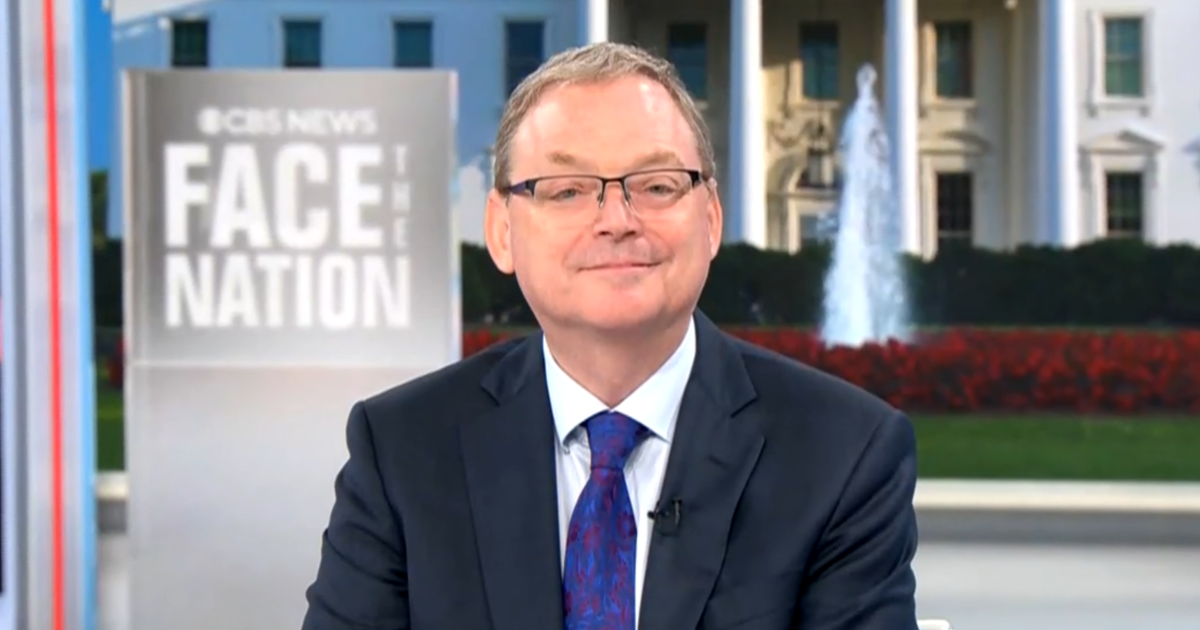

Top White House economic adviser Kevin Hassett has reiterated his belief that the Federal Reserve's monetary policy should remain entirely independent of presidential influence. This stance, while seemingly straightforward, carries significant implications for the relationship between the executive and central banking branches of the US government. Hassett's emphasis on "fully independent" underscores a long-standing debate about the appropriate level of interaction between the White House and the Fed. While presidents can certainly influence the Fed through appointments (nominating board members and the chair), direct interference in the day-to-day decisions regarding interest rates, quantitative easing, or other monetary tools is generally considered undesirable. The argument is that political pressures could lead to monetary policies driven by short-term electoral gains rather than long-term economic stability. An independent Fed, free from such pressures, can theoretically make objective decisions based on economic data and analysis, fostering price stability and full employment. Hassett's public statements on this issue serve several purposes. Firstly, they reinforce the administration's commitment to the principle of an independent central bank, a cornerstone of a healthy market economy. This commitment reassures investors and international markets that US monetary policy is not subject to the whims of the current administration. Secondly, it could be a preemptive measure, aiming to prevent accusations of political interference should the Fed's actions differ from the administration's immediate economic preferences. However, the reality is more nuanced. Even with formal independence, the Fed's actions have political consequences and inevitably influence the broader economic landscape. Presidential administrations, regardless of their stance on independence, often express opinions on the Fed's policy direction, albeit usually indirectly. The delicate balance between acknowledging the Fed's autonomy and influencing its overall objectives remains a constant challenge for any administration. Hassett's advocacy for full independence may be interpreted as a subtle pushback against any potential future criticisms of the Fed's policies, should the economy experience unforeseen challenges. By establishing a clear demarcation of responsibilities, he seeks to shield the administration from blame should the Fed's decisions – made independently – have negative repercussions. Ultimately, the ongoing dialogue around the independence of the Fed highlights the complexities of balancing political realities with the need for a stable and predictable monetary policy.

Washington — Director of the National Economic Council Kevin Hassett, who President Trump has said is on his shortlist to become the next chair of the Federal Reserve, said Sunday that the Federal Reserve's monetary policy "needs to be fully independent of political influence — including from President Trump."
"The fact is that we've looked at countries that have allowed the leaders to take over the central banks, and what tends to happen is that it's a recipe for inflation and misery for consumers," ."
The comments came after Mr. Trump said Friday that Hassett is among three candidates he's considering to replace Federal Reserve Chair Jerome Powell, whose term is up in 2026. Powell, has faced intense pressure from the president to cut interest rates, spurring questions about the White House's influence at the central bank.
Hassett said central bank independence is something "Democrats and Republicans in the White House all agree about."
"Now the question is, has the current central bank been as independent as we would like, as transparent as we would like, and I think that there's some dispute about that," Hasset added.
Treasury Secretary Scott Bessent called for changes to the Federal Reserve and a widespread review of the institution in a Wall Street Journal on Friday, writing that "mission creep and institutional bloat threaten the central bank's independence." Hassett said on Sunday that he agrees with Bessent's piece, but he wouldn't commit to implementing his ideas should he become the next Fed chair.
"I agree with his vision, but I look forward to the president deciding who's going to be the Federal Reserve Chair, and I think that he and Secretary Bessent will do that ably," Hassett said. "There are a lot of great candidates."
Federal Reserve Governor Christopher Waller and former Federal Reserve Governor Kevin Warsh are also on Mr. Trump's shortlist.
Mr. Trump's Federal Reserve Governor Lisa Cook from the central bank, as well as selecting a top economic aide as a replacement for another post on the board of governors, have sparked questions around independence at the Federal Reserve in recent weeks, raising concerns among that the White House is trying to wrest control of the historically independent central bank.
Stephen Miran, Mr. Trump's pick to join a vacated seat on the Federal Reserve Board of Governors, testified on Capitol Hill last week and sparked criticism from Democrats after he suggested he wouldn't immediately resign from his White House role if he was confirmed.
Miran, who currently chairs the White House's Council of Economic Advisers, acknowledged at the hearing that Mr. Trump selected him "because I have policy views that I suppose that he liked." But he pledged that if confirmed, he would "act independently."
"I couldn't be more in agreement that independence of the central bank is of paramount importance for the economy, for financial markets, for the long-run stewardship of the country," Miran said.
TheNews released Sunday found that 68% of Americans want the Federal Reserve to make decisions independently from Mr. Trump. But 59% of Republicans say the Fed should be guided by what the president wants.
The developments come as U.S. employers added 22,000 jobs in August, according to the August released Friday, falling short of economists' expectations. Hiring was lower-than-expected in as well, a pattern that complicates the Federal Reserve's next rate cut decision, set for Sept. 17.





